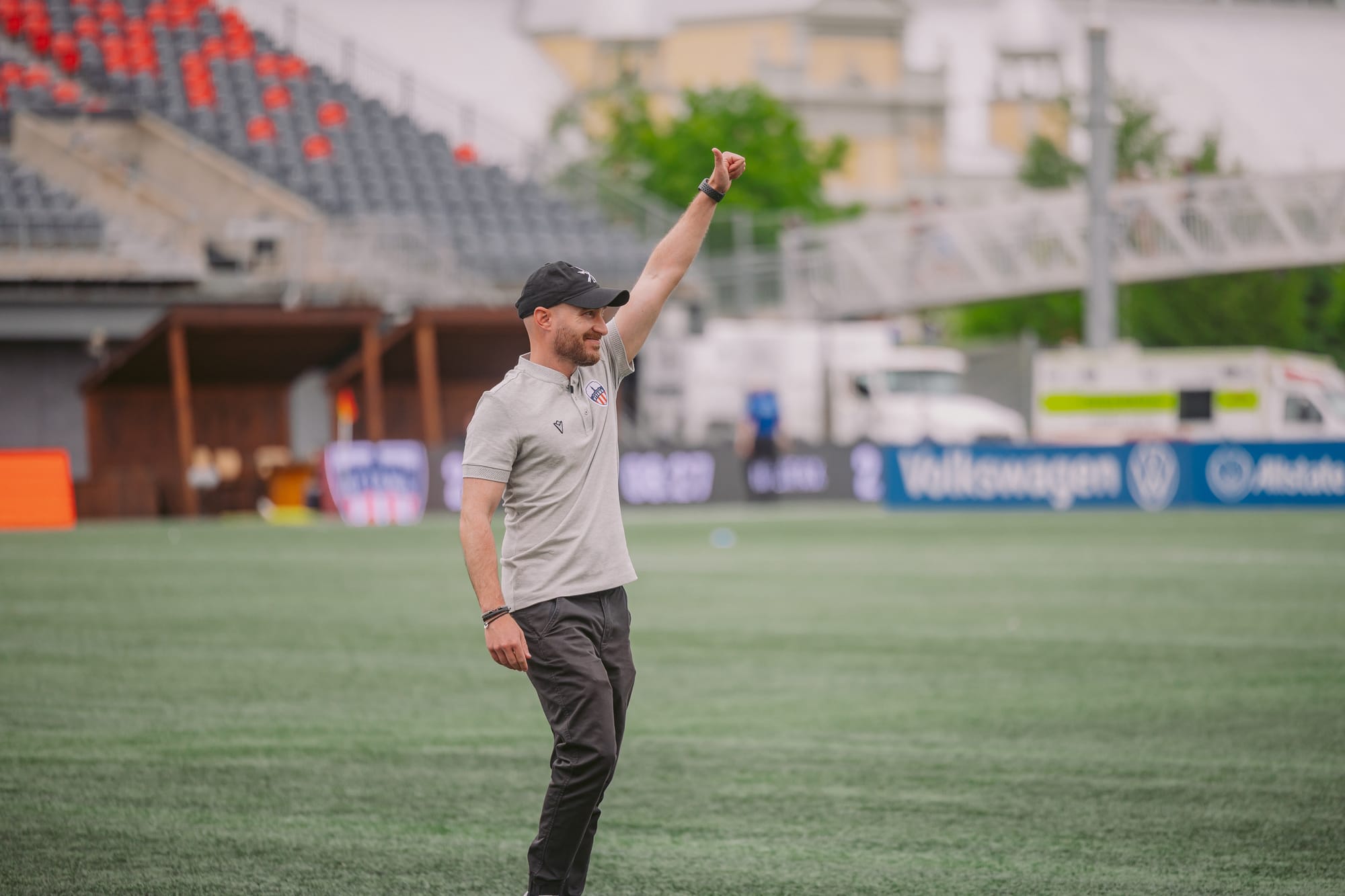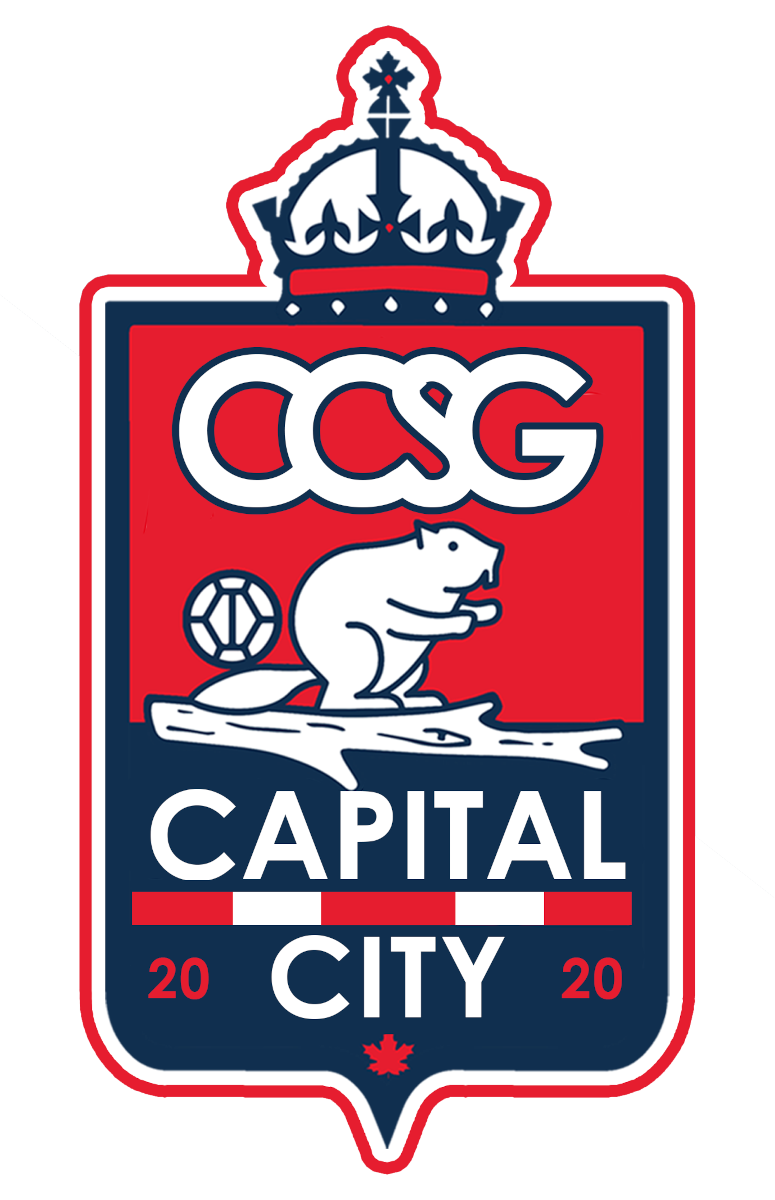The CarGo Era: A Retrospective
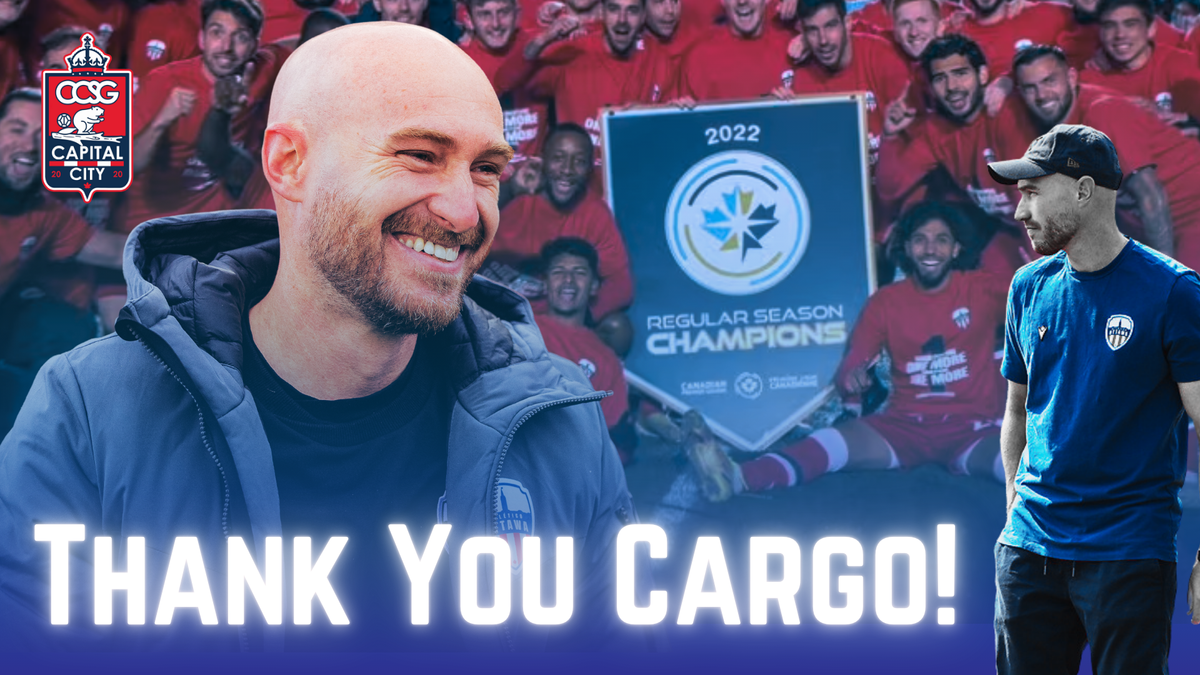
Coaching is not what people think it is. It’s more than showing up to the game with a few circles on a board and a vague idea of how to win. It’s waking up at 4:30 am in a cold sweat because you had a nightmare about a key player being injured. Coaching is saying the same instruction over and over again until the words no longer feel real because that one player really doesn’t understand that it's not a shooting drill, it's a passing drill. Coaching is hard, it’s frustrating, it’s stressful. But, at the end of the day, when you’re holding up a Canadian Premier League Championship banner and celebrating with your fans, that’s when you learn the reality of coaching; there is nothing more rewarding, nothing will make you feel more pride.
Carlos González has a lot to be proud of: Málaga gave the Granadino his start as a coach with a slot on their youth setup when he was only 26. His pathway to Ottawa, however, began in 2015, when CarGo signed with Atletico Madrid’s youth setup and led the U19 squad to the 2019 Copa del Rey Juvenil. He then took what a lot of coaches would call a dream appointment, a dual role as Manager of Kuwait SC, as well as Kuwait’s U23 National team. After a combined 29 games under his belt with them and later the Senior team, CarGo boarded a plane and flew a little north, and a lot west, to our beautiful Capital.
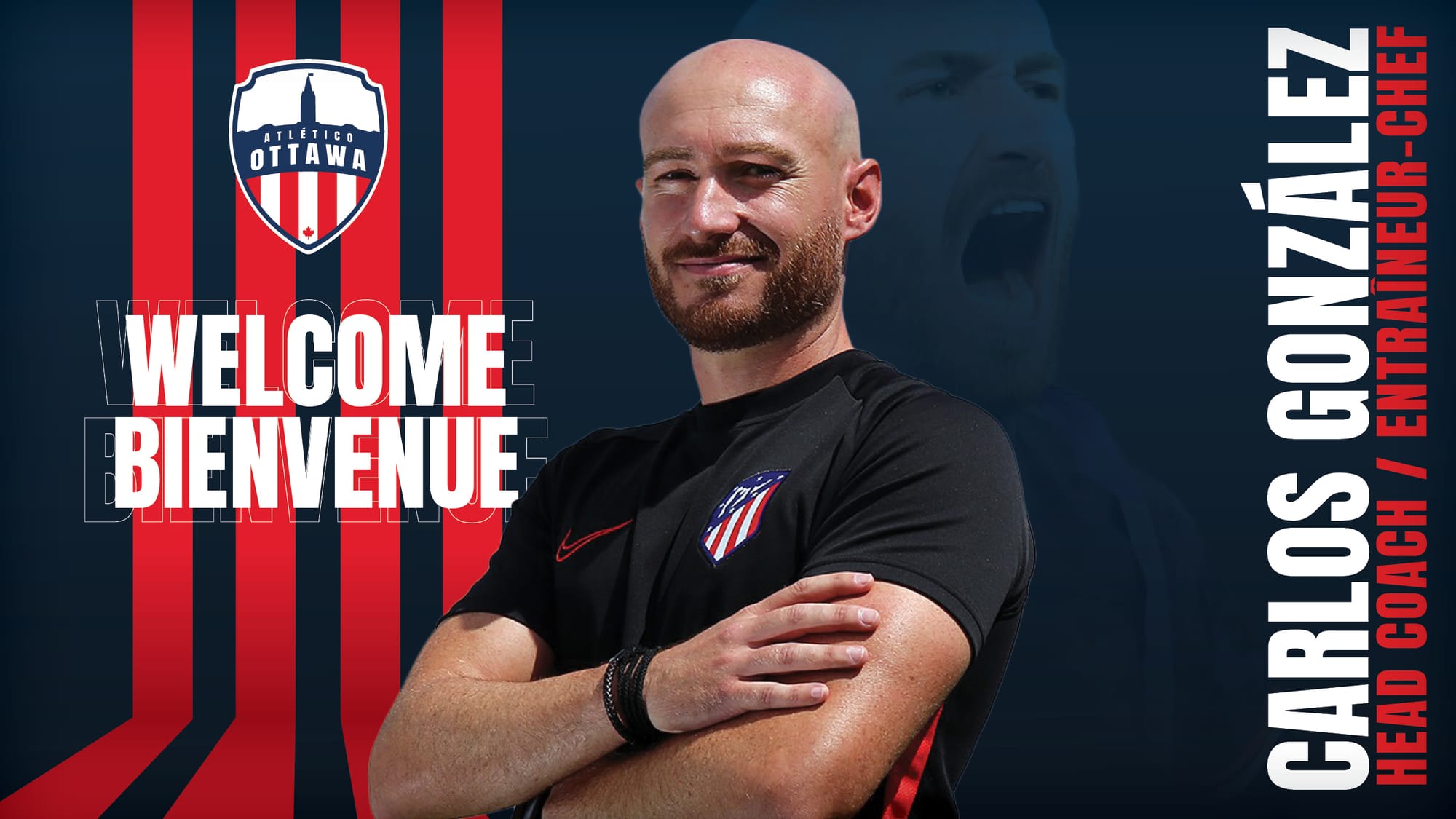
To say there was an air of uneasiness when Carlos was first announced is a bit of an understatement. ATO had had only a single coach at this point, Mista, who left with a pitiful record and two bottom-two finishes in the league. Replacing an inexperienced coach with another is certainly a risk, and the excitable Ottawa fanbase had a long off-season to contemplate it. The 2022 season opened with a perfect opportunity for the new gaffer; 3 home matches in 3 weeks, and we got a taste of the style that would become a signature of CarGo’s, one where the opponent is invited to attack and run themselves into exhaustion, before turning around with a blistering counter-attack. For two weeks it worked, delivering us a pair of 1-0 wins. There was hope. Then there wasn’t.
González suffered his first major setback on April 24th, a day which will live in infamy: Valour trumped Ottawa 6-1. We, as fans, had a hair trigger for disappointment, something we had picked up from the previous two years, and losing that badly at home that early had to be a sign. If you weren’t there, you may read this as an exaggeration but I promise you, these are all actual opinions we had. The week next, we drew. Then lost, then drew again. Second place, fifth place, sixth place. It was Mista all over again.
May turned to June, and with the warm summer sun came a hot streak. After a 2-1 win in Week 7, Ottawa never fell out of playoff contention. CarGo-ball, while not the most entertaining football in the CPL, delivered for Atleti fans. For the first time we won against every other team in the league. We had a positive goal difference. Our losses were only by single digits. We were on top of the world. In Week 21 Ottawa earned their eighth clean sheet of the year with a 3-0 win over Cavalry FC, pushing the team into 1st place, and through the power of CarGo’s defensive acumen Ottawa never again slipped up. After 2 years of failure overseas, Carlos González came to the city, ate a 6-1 omen, asked for seconds, and delivered us our first piece of silverware.
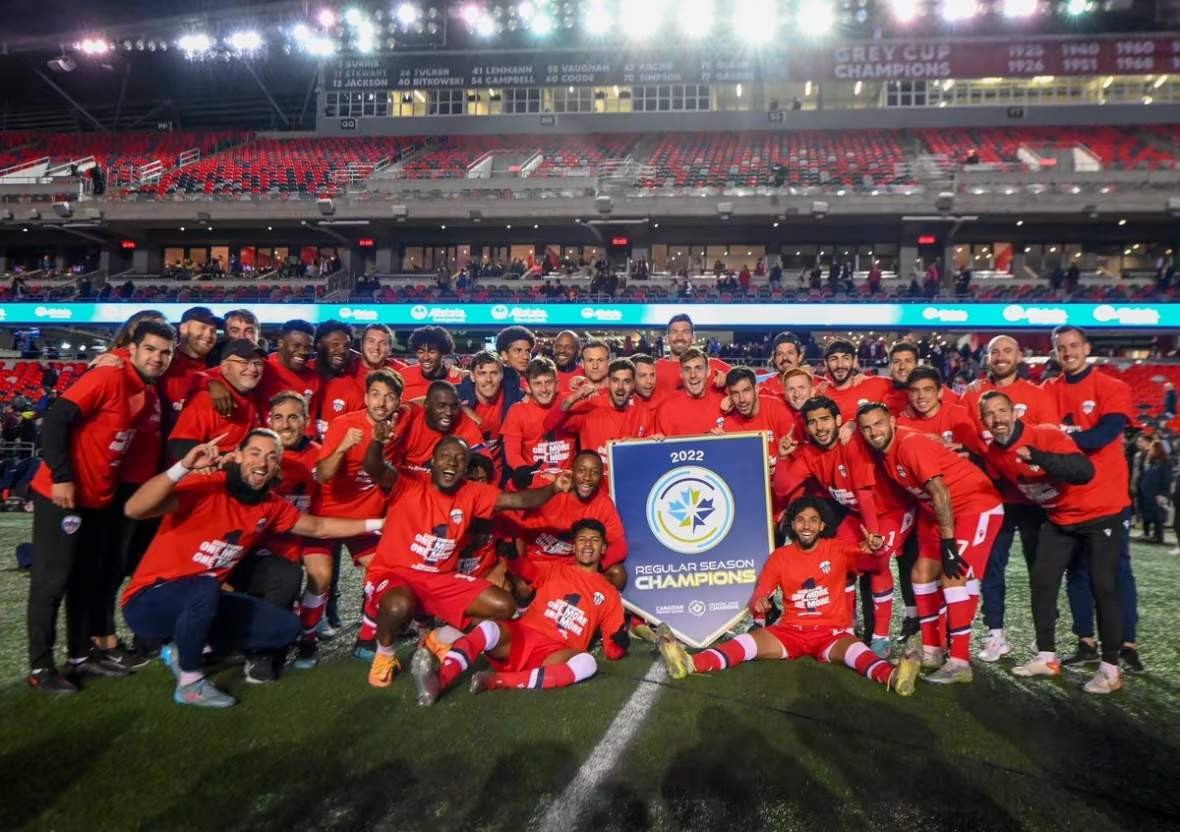
An unfortunate reality for most teams in the Canadian Premier League is the dreaded turnover. Losing most of your team year to year can make it difficult to build your system as a coach, and once you’ve developed your way of playing, it becomes second nature. You live and die by your system, and it’s not easy for you to change, even if it becomes unsuccessful. Therein lie the seeds of what was to come.
2023 was a difficult season for both Carlos and Atlético Ottawa. The results of that year have been explored from every possible angle, but to give it a summary, Ottawa never gained traction on the field. High-profile signings like Gianni dos Santos and Sam Salter failed to perform, a demand for/promise of attacking football from higher up didn’t gel with CarGo’s style or ability to execute, and overall the club lost a step in the competitive arms race that is the CPL. Even with the mid-season additions of Zaragoza legend Alberto Zapater and future 2024 Golden Boot runner-up Ruben Del Campo, and a short climb back up the table, the season ended with a long series of last-minute dropped points, and Ottawa missed the playoffs for the third time in four years.
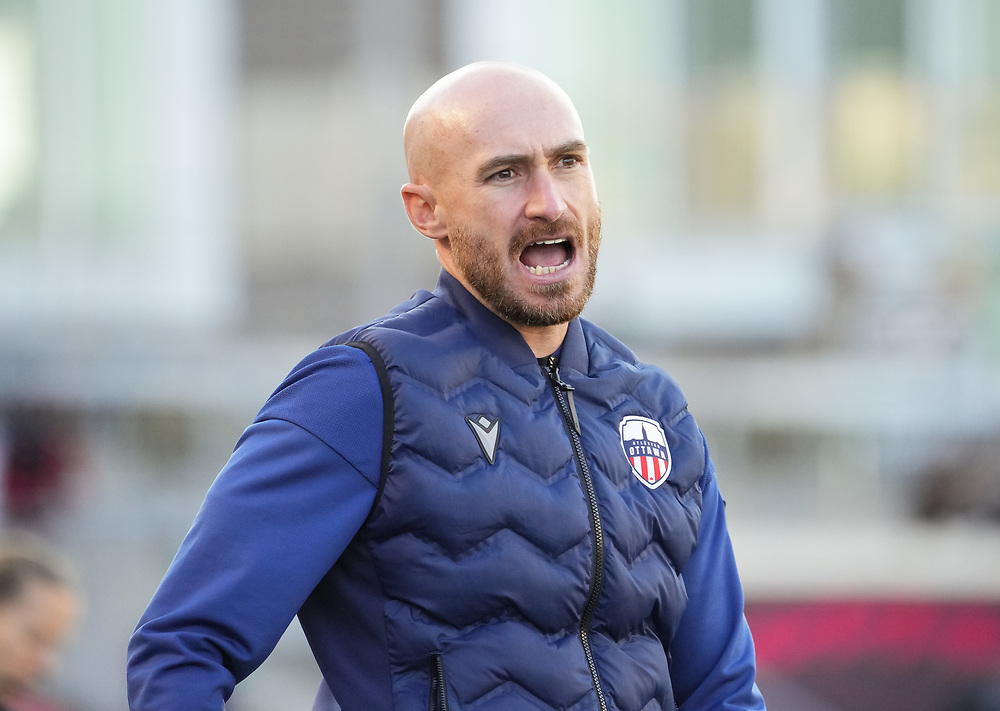
Despite the mixed results of his tenure up to that point, Carlos still had enough faith to warrant another go in 2024. CarGo donned a chef’s cap and, with the aid of then-CEO Fernando Lopez, cooked up one of the strongest teams the Canadian Premier League had seen up to that point, at least on paper. Local players Matteo de Brienne and Kris Twardek, and CPL veterans Amer Didic, Manny Aparicio, and Abou Sissoko led the signings list; hopes were sky-high.
However, games aren’t won on paper. The 2024 season has come and gone, and all that’s left is discussion. We never dropped out of playoff contention, but we never reached our pre-season goal of continental football. Despite a massive lead over second place and a long stretch in pole position from week one, Carlos once again fell to a late string of lackluster results at the end of the year. Despite another promise, another commitment to attacking football, halfway through the season, Carlos seems to have reverted to his signature defensive style, which failed him for a second year running. Despite finishing with a strong performance against Forge, we couldn’t reach the highs of 2022.
What happened? In my opinion, it was commitment. When a coach creates his philosophy, he commits. It is then his job to create the same level of commitment from his players. Somewhere along the line, be it from the coach to his manager, from the players to their coach, the commitment wavered. Regardless of who is to blame, the reversion late in the season to a high-risk style of inviting pressure opened us up to defensive errors. Our commitment to frantically peppering the goal with shots until we scored led to rushed, wayward passes and new craters on the moon. The line between a powerful asset and a terrible weakness is very thin in sports, and it is the job of the coach to help his players walk that line. Unfortunately, we jumped across that line a few too many times.
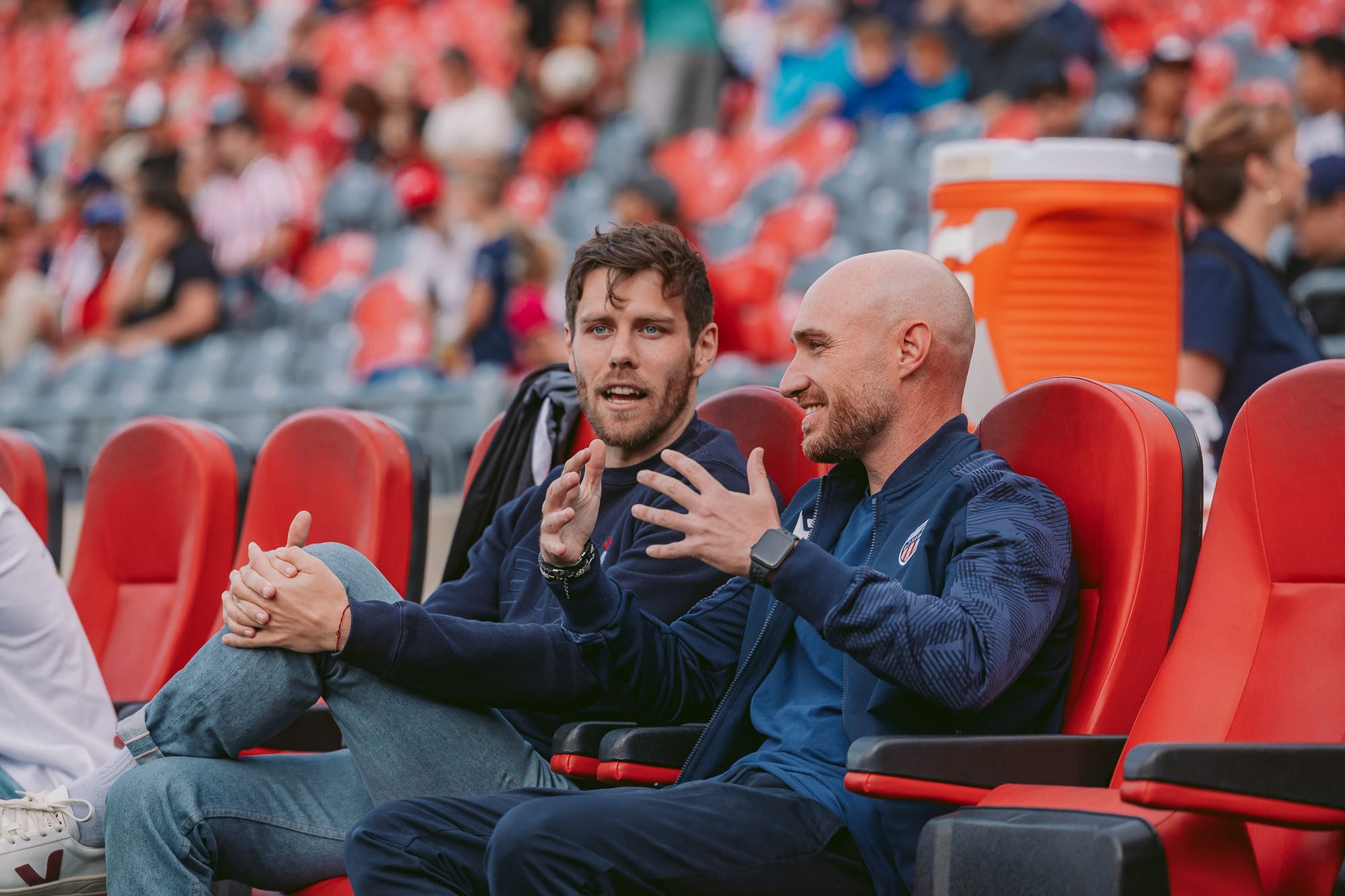
All of that aside, it is impossible to understate how important of a person Carlos is, was and will be for Atletico Ottawa. He proved that there was more than one way to win the league, and that has filtered down to the grassroots level, whether he knows that or not. It is also really important to stress that he is still very young in terms of coaching: Carlos is only at the very start of his career. The steps he’s taken here are simply the first in what is surely going to be a fascinating and successful run at this level of football. Being the first coach to win a trophy for a club deserves its place in the history book, and his natural charm in front of the camera has given the fans some of their best reaction GIFs.
No matter what the future brings, from myself, CCSG, the coaching community of Ottawa, and from all of the people who have ever seen you work your magic at TD Place or on TV, thank you Carlos González. Thank you for winning us the league, thank you for filling the stands, and thank you for proving to the fans of soccer in Ottawa that our team is full of champions, now and forever.
Gracias gaffer, lo mejor de las suertes.
